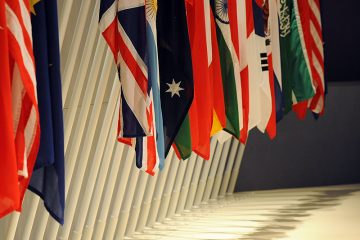
On the Margins: Meetings to Watch at the Hamburg G20
Summits are not just — or even mostly — about what happens in the formal leaders’ meetings. What happens on the sidelines often has the largest effect on steering the course of international politics. This is the first year that the G20 summit could end up as a failure, advancing little in the way of substantive progress on the global governance agenda, chiefly owing to the group now having to contend with Donald Trump taking America’s seat at the summit table. Trump’s ‘America First’ agenda — typified by its economic protectionism and rejection of the established multilateral order — is entirely antithetical to the G20’s previous commitments to reject protectionism and safeguard the liberal, rules-based, multilateral governance order. This year’s G20 …

How effective is UN peacekeeping?
Peacekeeping is at the centre of the UN’s efforts to maintain international peace and security. Today, more than 100,000 soldiers and police from 125 countries are serving as blue-helmeted UN peacekeepers around the world. These soldiers and police are endeavouring to keep the peace within, or between, more than 20 conflict-affected states and territories. How effective are UN peacekeeping efforts? There have been spectacular failures (Rwanda) and notable successes (El Salvador) but how great is the contribution of UN peacekeeping overall? Scholars are divided on this question. Virginia Page Fortna’s seminal work on the impact of UN peacekeeping operations (UNPKOs) suggests that the presence of UNPKOs significantly improves the chances of peace surviving following the cessation of hostilities. In the …
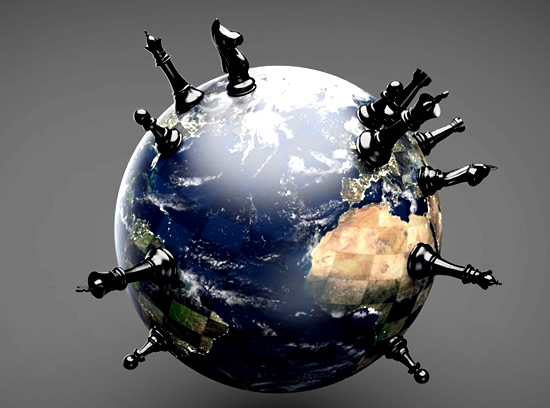
The ‘Ocean Model of Civilization’, Sustainable History Theory, and Global Cultural Understanding
Many interpretations of international conflict share common assumptions regarding the default oppositional nature of states or cultures. According to Realism, the predominant theory of International Relations, conflict arises inevitably, and is a natural outcome of a highly competitive international environment. It is also a reflection, and extension, of the competitive, selfish and power driven nature of man. In a larger sense, “man” can refer both to individuals and to larger communities (or tribes, in ancient times) that one belongs to and toward which one feels protective – by virtue of sharing an in-group identity. For some thinkers, including some Realists, the origin of this perpetual conflictual mode can be traced to irreconcilable cultural differences. Samuel Huntington’s well-known “clash of civilizations” …
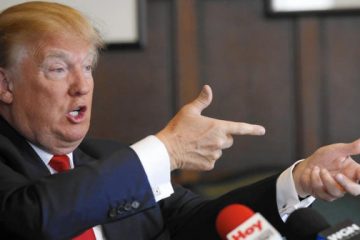
Even more unpredictable: Trump’s U-turn on Syria
“When you kill innocent children – innocent babies – babies – little babies with a chemical gas that is so lethal, people were shocked to hear what gas it was, that crosses many, many lines. Beyond a red line, many, many lines,” Trump said when asked about Tuesday’s chemical weapons attack in Syria that killed some 80 civilians and injured many more. Thursday night he swiftly followed through with his remarks, launching missile strikes on Shayrat airfield in Syria, where the attack is suspected to have originated. Commentators have been quick to point out Trump’s remarkable U-turn on Syria. From his ‘America First’ rhetoric, to his cosying up to Putin and repeated statements that he thinks ‘many very bad things …

Kompromat or not, Russia already has a winner in Trump
By all accounts the relationship between President Donald Trump and the Kremlin holds the makings of a dark, Hollywood thriller. Trump is a US President at war with his own intelligence agencies, whilst denying – only to later admit – Russian interference in the election. Freshly inaugurated, he already faces comparisons to a modern-day Manchurian Candidate, referring to the 1959 novel about a brainwashed president controlled by sinister, external forces. But how fair is this? And do we really know what the Russians are up to? As a political scientist, my research examines the tools of contemporary warfare and influence used by the Kremlin. Thus far I have identified over 40 tools of Russian state power, military and non-military. The …

TRUMP’S IMPACT ON INTERNATIONAL RELATIONS
It is slowly dawning on us all that Donald Trump was right when he said that the American election day ‘will be Brexit times 10’. In my experience, 4,000 miles across the Atlantic, people looked ten times more shocked when they saw Trump give a victory speech than when it became clear that their country had decided to leave the European Union. Much has been written about Trump’s hateful rhetoric, which has offended 282 people and places on twitter alone, and the possible ramifications of his breaking long-established domestic norms. But it is the global implications of a Trump presidency that worries people across the globe. If he makes true on his campaign promises, we would see a large-scale withdrawal …
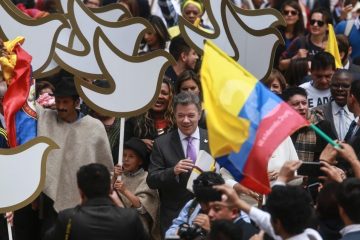
Why the real test for Colombia’s peace begins after the demobilization process
On Aug. 29, 2016, the Colombian government and the leftist insurgent group FARC initiated a cease-fire. The two parties had reached a remarkable peace accord a few days earlier, hoping to end 52 years of civil war. Colombian President Juan Manuel Santos announced that the peace deal will be formally signed Sept. 26, which would trigger the 180-day demobilization of the FARC. Colombia’s armed conflict, the longest-running in recent global history, left more than 220,000 people dead and about 6.7 million displaced within the region. The cease-fire formalizes the end of combat activities between state forces and the FARC, formally known as the Revolutionary Armed Forces of Colombia — and all hostilities against civilians. After decades of brutal violence and several failed peace processes, this …
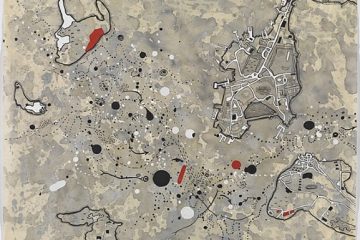
The neuro-philosophy of international relations
Neuroscience has had limited disciplinary connectivity to the field of International Relations (IR) and Politics. The field of IR is traditionally understood to be about the relations between states, competition, power and resources. As a result, the findings of neuroscience appear to hold little relevance for IR scholars. At the same time, the philosophical interest in human nature has been a crucial driver in the development of IR studies since its inception. At its origins, the Realist theory of International Relations comes from an analogy between human nature and states, and human nature and international anarchy. In his famous work Leviathan, first published in 1651, Thomas Hobbes elaborated on the state of nature and man’s fallible existence in the absence of …









